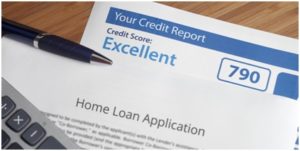April 14, 2017
 Holiday plans are often spontaneous and happen when you’re desperately in need of a break from the monotony of your life. Suppose you are planning a family vacation when your spouse or kids have holidays but your funds are a bit tied up. Should you postpone your vacation till you have the money? Absolutely not! Instead of being disheartened by thinking that you do not have sufficient funds at the moment, you can simply plan a vacation with a personal loan.
Holiday plans are often spontaneous and happen when you’re desperately in need of a break from the monotony of your life. Suppose you are planning a family vacation when your spouse or kids have holidays but your funds are a bit tied up. Should you postpone your vacation till you have the money? Absolutely not! Instead of being disheartened by thinking that you do not have sufficient funds at the moment, you can simply plan a vacation with a personal loan.
You can finance your travel smartly by availing a personal loan. Based on your credit history& income source, the eligibility and amount will be determined and accordingly the tenure and repayment conditions for the loan will be laid out. Salaried individuals find it easier to avail personal loans as compared to self-employed businessmen. However, if you have filed tax returns & all company documents are in place, even self-employed individuals can avail a personal loan without providing collateral.
An online personal loan is extremely easy to avail and rarely require any form of collateral. If you meet the eligibility criteria set by the lending institutions and have the necessary documentation in place, there is a definite chance your application will get an approval. In fact, these days online personal loans can be completely paperless with online submission of scanned id and residence proof.
How do personal loans compare with credit card EMIs? There are tax benefits for personal loans. You can claim income tax benefit under Section 24 on personal loan which offers an overall interest benefit of 1.5 lacs for tax exemption. In addition, extending your credit card to finance your travel is not a good idea as they have predefined credit limits that may not suffice the amount you need for your travel.
Tags:
budgeting,
Debts,
loans,
money,
personal finance,
savings,
tax
January 1, 2017
 Most families have accumulated a significant amount of debt due to auto loans or credit cards that have been used over the years. Acquiring debt can make it easy to feel limited with your finances, which can make it difficult to make ends meet. To become debt-free and obtain financial freedom, there are a few important steps to take.
Most families have accumulated a significant amount of debt due to auto loans or credit cards that have been used over the years. Acquiring debt can make it easy to feel limited with your finances, which can make it difficult to make ends meet. To become debt-free and obtain financial freedom, there are a few important steps to take.
1. Create a Budget
Creating a budget will allow you to determine how much money you can afford to put towards your debt each month. Calculate your household income and write down your expenses, which will allow you to get an idea of how much debt you will pay off with each paycheck.
2. Establish Goals
Establishing goals to pay off your debt in a specific time frame will make it easier to stay on track and avoid losing focus with paying off the debt in full.
3. Cut Coupons
You can save more money each month to put towards your debt by cutting coupons in the newspaper for food and household items that you already purchase. Combine manufacturer coupons and store coupons to double your savings.
4. Pay Off Lowest Balances First
Paying off the accounts that have the lowest balance first, which will allow you to stay motivated and will reduce the amount of money that you pay in interest each month. There are some credit repair companies that can help you consolidate and repay your loans.
5. Avoid Eating Out
Reduce the money that you spend each month by making your meals at home and avoid dining out when you’re on the go. Prepare meals and have easy snacks on hand to take to work and stay within your food budget.
6. Shop at Secondhand Stores
Shopping for clothing or goods at secondhand stores can allow you to avoid paying full price for products that your family may need when it comes to purchasing school clothes or work attire.
7. Use the Envelope System
Convert your paycheck into cash and transfer it into different envelopes to avoid overspending and track how much you have left to spend. This will allow you to become more conscious of how much money you spend without relying on a credit or debit card.
Although it can be challenging to pay off debt as a family, there are several lifestyle changes that can be made to make progress with the money that you owe. By establishing rules with your finances and making goals, you can track the money that you pay off to ensure that you obtain freedom in a realistic time frame.
Tags:
budgeting,
credit,
debt,
financial planning,
loans,
money
December 14, 2016
 When you find that house of your dreams, the first thing that springs to mind is to apply for home loan since it’s your ticket to funding the big purchase. But sometimes, loan applications get rejected for various reasons, among which the most common is a low CIBIL or credit score. It is major factor that determines your loan approval, loan amount and even rate of interest.
When you find that house of your dreams, the first thing that springs to mind is to apply for home loan since it’s your ticket to funding the big purchase. But sometimes, loan applications get rejected for various reasons, among which the most common is a low CIBIL or credit score. It is major factor that determines your loan approval, loan amount and even rate of interest.
Why is high and low credit score important?
While a high credit score is viewed as a low probability of a default, a low credit score reflects the opposite, making financial institutions wary of the person applying for a home loan.
Credit score is a three digit number that ranges between 300 and 900. It reflects your creditworthiness as it is a summary of your payment history, outstanding balances, number of loans, total credit limit, credit utilization, every loan detail taken from different lenders. Higher credit scores are great for you if you are applying for a home loan. On an average, a credit score of 750 is great for borrowers as lenders find themselves at less risk. Moreover, at this score, you can get good deals on your home loan and better rates of interest.
Your credit score is impacted positively by:
● Consistent payment of loan EMIs
● Credit card bill payments on time
● No over-leveraging
● Payment of credit card bills in full as opposed to minimum due amount each time
● Good financial records
● Many types of credits, especially unsecured personal loans in family
● Good utilization of credit limit on cards
Your credit score is impacted negatively by:
● A lot of credit report enquiries by banks and financial institutions
● Dishonoured or bounced cheques
● Loan repayment irregularity
● Defaults on credit repayments and even defaulting as a guarantor
● Late payments on credit cards or making part payments consistently
● Number of unsecured credit (multiple personal loans)
● Numerous applications for unsecured loan, especially when rejected
● Going beyond the approved credit limit and even high utilization of it
Other than these, your credit score can also be impacted negatively when banks or financial institutions you are dealing with make errors in their records. Hence, it’s important that you keep checking whether or not your banks are submitting the right information. It comes really handy if you request and maintain a copy of your credit history personally as compared to a financial institution doing that for you.
Tags:
Debts,
economy,
Home Loan,
Interest Rates,
investments,
loans,
money,
Mortgages
December 13, 2016
 CIBIL Score is a crucial aspect in determining your home loan eligibility. Every time you apply for home loan, your lender checks this score for approving/disapproving your application. It is a summary of your credit history as per your credit behaviour. It depends on the following factors:
CIBIL Score is a crucial aspect in determining your home loan eligibility. Every time you apply for home loan, your lender checks this score for approving/disapproving your application. It is a summary of your credit history as per your credit behaviour. It depends on the following factors:
Past payments: All your previous payments, whether on time or delayed, are recorded with CIBIL. Consistency in making payments is considered good whereas more recent delays are seen negatively.
Settlements, defaults and write-offs: Multiple write-offs, defaults on previous loans and more recent write-offs (as opposed to older ones) have negative effects on your credit score. Defaults and delays on secured loans are worse than on unsecured loans.
Credit as proportion of income: The higher the loan balance you have, the lower your credit score will be. Less loan balance shows smart credit utilization on your part.
Credit cards: If you have high credit card balances, your credit score will be low. Consistency in repaying credit card debts improves the score. Credit cards (unsecured loans) are viewed negatively by lenders as compared to secured loans.
Different ranges of CIBIL Score
Every person with a financial history has a CIBIL score and it can range anywhere between 300 and 900, with 900 being the highest. A person can also have a score of 0 or -1, which means that they have no credit history in terms of loans and credit cards. So to get the credit history started, you must have at least one credit card or applied for a loan. Here is a breakup of CIBIL scores and what it means:
- 550 – 650: It is a fair score and accepted by many lenders. This score shows that you have been quite regular with your repayments, other than a few exceptions. Most lenders trust borrowers with this score and approve their home loans but usually with a higher interest rates.
- 300 – 550: This is the worst score anybody can have and it means that you have been defaulting on your payments. With such a score, getting credit is extremely difficult.
- 650 – 750: For home loan eligibility, this score is very promising. And if you have this credit score, you will not face any issue regarding approval of application.
- 750 – 900: It is the best possible score anybody can have and it indicates your expertise at managing your finances. Lenders will approve even a larger loan amount to you at great rates when you apply for home loan.
Tags:
Debts,
economy,
Home Loan,
Interest Rates,
investments,
loans,
money,
Mortgages
November 26, 2016
 Low credit ratings often increase the interest rates on various financial products, such as home loans or credit cards. Borrowers with higher credit scores are able to save significant amounts on their loans when compared to individuals with lower credit scores.There are several ways that help people to improve their credit scores given by credit rating agencies like Credit Information Bureau (India) Limited (CIBIL). The agencies do not treat all types of debts in the same way while calculating the credit score. The ratings are affected negatively if the outstanding balance on the card increases.
Low credit ratings often increase the interest rates on various financial products, such as home loans or credit cards. Borrowers with higher credit scores are able to save significant amounts on their loans when compared to individuals with lower credit scores.There are several ways that help people to improve their credit scores given by credit rating agencies like Credit Information Bureau (India) Limited (CIBIL). The agencies do not treat all types of debts in the same way while calculating the credit score. The ratings are affected negatively if the outstanding balance on the card increases.
Here are five ways that help improve credit scores.
1. Lower the Credit Card Balance
The best way to improve credit rating is to lower the outstanding balance on the card. The rating agencies make a downward revision to the score if the credit utilization ratio exceeds a certain percentage. This ratio is the amount used by the cardholders as a percent of the overall credit limit. Reducing card balance may seem to be a difficult task but is achievable with the help of discipline. Users must adhere to stringent limits to reduce the balance and improve the credit score. If possible, individuals may ask the issuing company to increase the limit on their cards. This may also help improve the credit score provided the users do not increase their spending because of the higher limit.
2. Convert Card Debt to Personal Loan
With some diligent planning, card users may be able to improve their credit ratings even before paying off the debt. They are advised to consider converting the card debt to a personal loan. Higher outstanding balance on card reduces the credit score much more than personal loans. Loans with fixed installments are not considered by the agencies while calculating the credit ratings. Therefore, availing a personal loan instead of maintaining a high balance on the credit card is advisable. In addition, to improve credit score, such conversion is beneficial in reducing the cash outflows. The interest rates on personal loans are often lower than the card interest rates. It is important that the cardholders discontinue the use of their credit cards after such conversion to ensure the ratings are not affected.
3. Selective Accelerated Debt Payments
Repaying loans in a timely manner has several benefits. However, individuals who want to improve their credit scores must consider postponing such pre-payments. The money should instead be used to pay off the card outstanding because this kind of debt affects the scores more than loans.
4. Keep Regular Checks on Credit Report
Research shows that a significant percent of individuals have errors on their credit reports. It is possible that errors have severe results on the credit scores. This further impacts their borrowing capability and rate of interest that is levied on their loans. It is recommended that borrowers check their credit report prior to applying for any kind of loan. If any errors are found, they must immediately contact the rating agency and seek rectifications. This would help improve their credit score and enable them to borrow at a lower rate of interest.
5. Make Timely Repayments
Credit scores are significantly affected due to delayed payments. Lenders report delays to the agencies after 30 days from the payment due date. Such late payment reports are reflected in the credit score for many years, which impacts the individuals negatively. To avoid this, making timely payments is recommended.
Unfortunately, several people in India are not aware of the importance of good credit ratings. They fail to understand that even a slight improvement in their credit score may help them save huge amounts and get a lower interest rate on their borrowings.
Tags:
budgeting,
credit,
Debts,
economy,
loans,
money,
personal finance
 Holiday plans are often spontaneous and happen when you’re desperately in need of a break from the monotony of your life. Suppose you are planning a family vacation when your spouse or kids have holidays but your funds are a bit tied up. Should you postpone your vacation till you have the money? Absolutely not! Instead of being disheartened by thinking that you do not have sufficient funds at the moment, you can simply plan a vacation with a personal loan.
Holiday plans are often spontaneous and happen when you’re desperately in need of a break from the monotony of your life. Suppose you are planning a family vacation when your spouse or kids have holidays but your funds are a bit tied up. Should you postpone your vacation till you have the money? Absolutely not! Instead of being disheartened by thinking that you do not have sufficient funds at the moment, you can simply plan a vacation with a personal loan.




Recent Comments